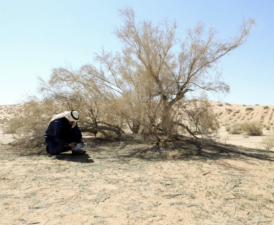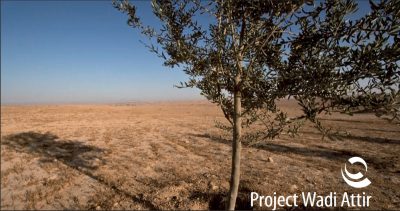 When Indigenous people rule, nature has rights.
When Indigenous people rule, nature has rights.
Bolivia will soon pass a law called “The Law of Mother Earth.” Under this law, the government decrees that nature has eleven rights similar to those enjoyed by human beings. The Law of Mother Earth is fully supported by the President, Evo Morales, whose party enjoys a majority in both houses of parliament. This marks the first time in recent history that a politician has acknowledged so unequivocally that nature deserves to be respected not only for human benefit but for its own sake. There is a lesson that environmentalists and rulers in the Middle East can take from this story, and it lies in our indigenous people.
Evo Morales is Bolivia’s first indigenous president from native Aymara descent. His people subscribe to the Andean worldview that all living things have equal rights.
According to Inka Wisdom:
In Andean philosophy, Pachakamaq is the Creator and Originator of everything that exists—including time, nature, the Cosmos, and all things, whether physical or non-physical. Pachakamaq is pure, Potent Energy, unmanifested Divinity. Above all else, Andean Spirituality is UNITY and connectedness among all things. No one is excluded; everyone—and everything—has a specific function and is in a state of continuous evolution.
In accordance with this basic philosophy, an earlier, shorter version of the Law of Mother Earth guarantees nature the following rights:
– The right to life including the integrity of ecosystems and natural processes, and the necessary conditions for regeneration
– The right to biodiversity which should be preserved without genetic modification
– The right to water in sufficient quantity and quality to sustain life, protected from pollution
– The right to clean air
– The right to equilibrium through “maintain[ing] or restor[ing]] the interrelation, interdependence, complementarity, and functionality” of all parts of the Earth
– The right to restoration of ecosystems damaged by human activity
– The right to live free of pollution including toxic and radioactive waste
It is not only in Bolivia that indigenous people enjoy a closer relationship to nature and internalize the concept of interdependence. Cameron Davidson from the Arava Institute notes that contrary to popular belief, Bedouin women are very knowledgeable about water – sources of it, and its importance.
Meanwhile, the World Conservation Union (IUCN) reports on a joint initiative near Libya between the Academy of Scientific Research and Technology and the University of Cairo. With both knowledge and species of desert plants declining, the center harvests longstanding Bedouin knowledge.
Despite our sophisticated scientific gains, and the tireless work of conservation groups and environmentalists around the world, we have been unable to convince major corporations and even individuals divorced from natural cycles that it is not only wrong to destroy nature for short-term gain, but that it is stupid.
As evidenced by Bolivia’s historic ruling, ancient architectural methods, and even ancient culinary practices, indigenous people intuitively trump our shallow understanding of nature. But with people like Evo Morales, who intends to extend Bolivia’s law beyond its own borders, and Polly Higgins, who has taken important strides to realize “Ecocide” – a law that makes it illegal to destroy ecologically-sensitive places – a more respecting and ultimately smarter relationship with nature may be in sight.
More on indigenous knowledge in the Middle East:
Lamu’s Muslim and Indigenous People Demand Natural Justice
Stunning Resort in Abu Dhabi Will Celebrate Bedouin Architecture
Ethical Foraging Saves Native Flora
image via wikicommons



